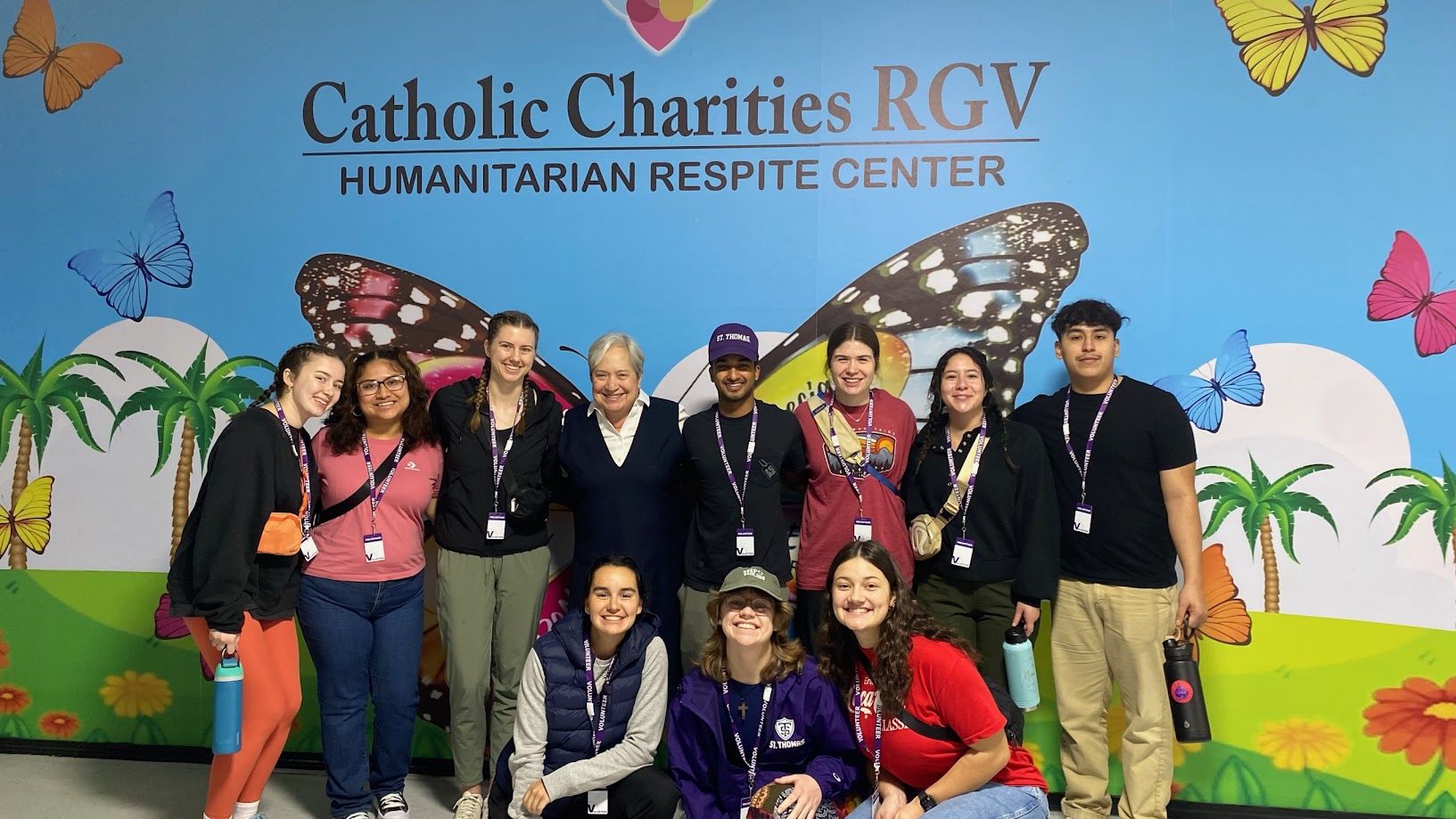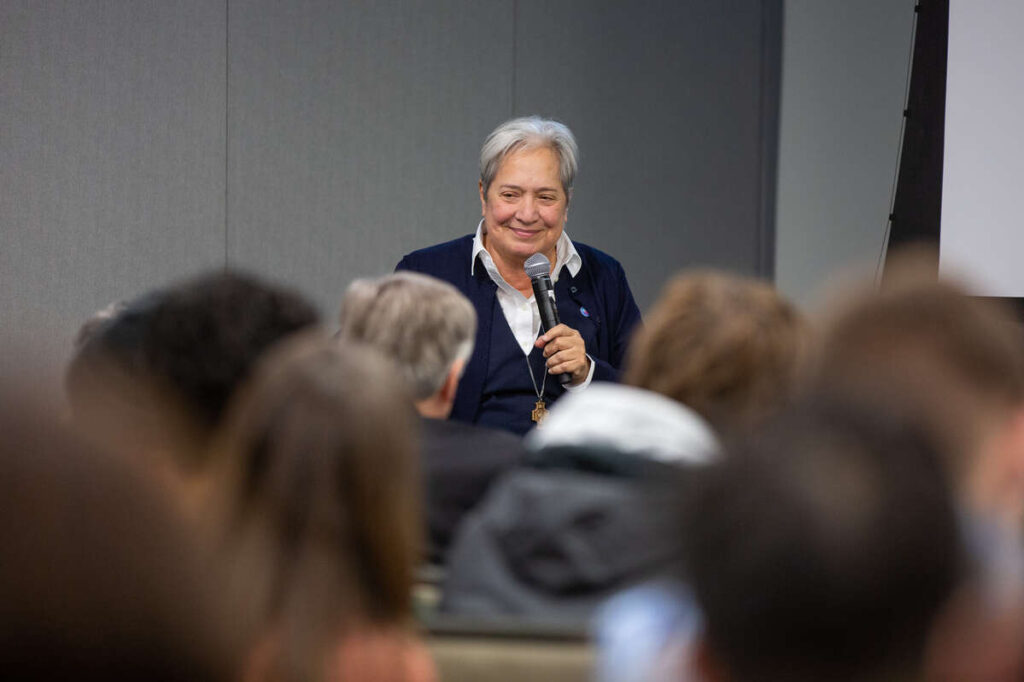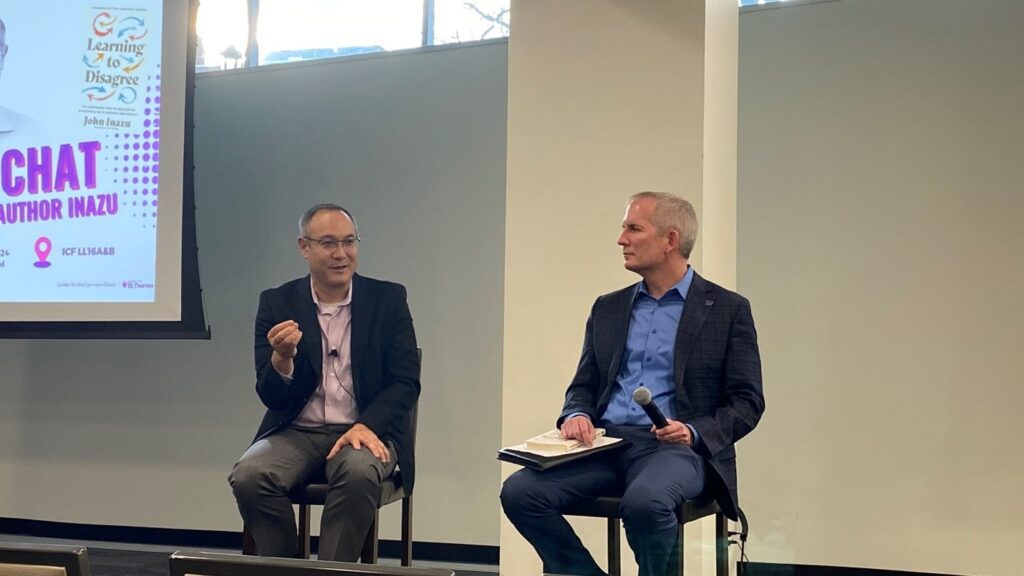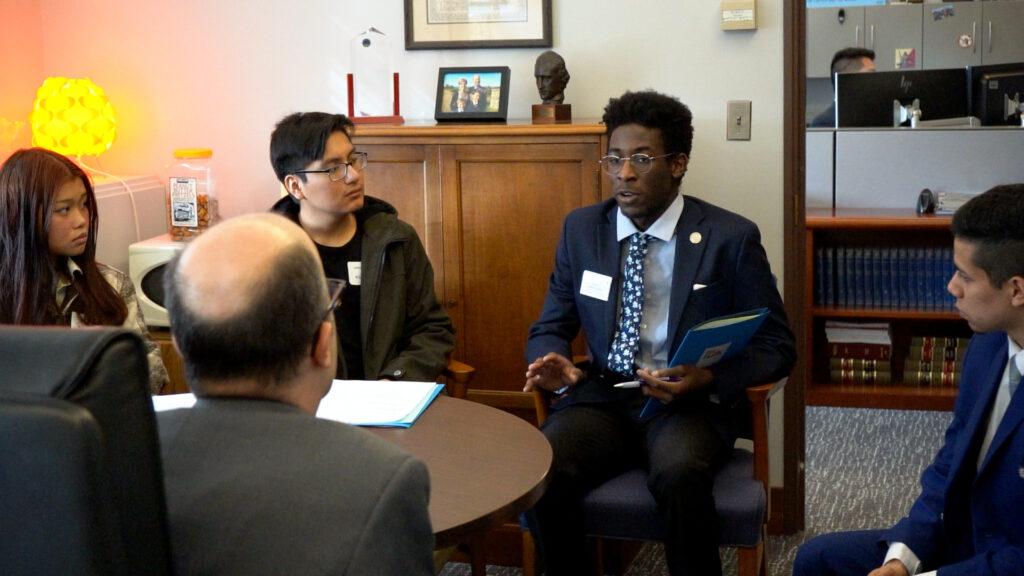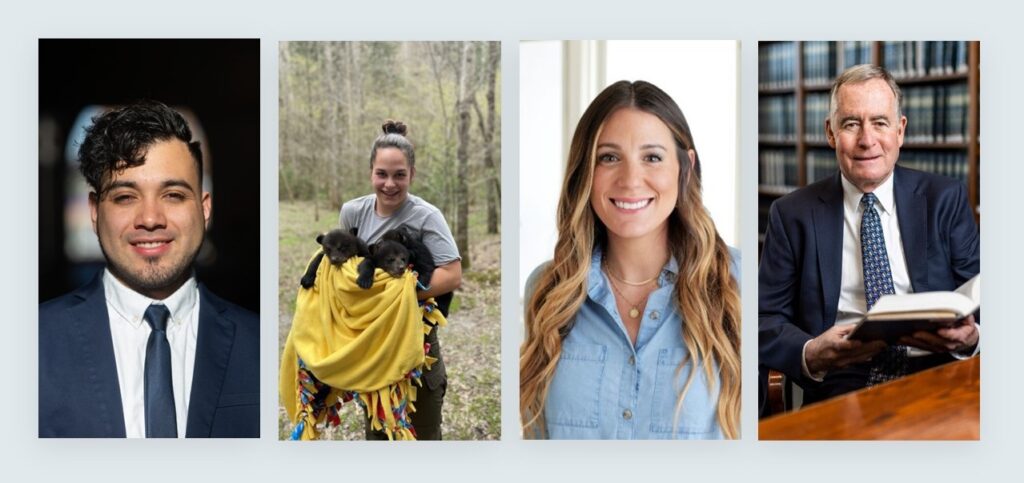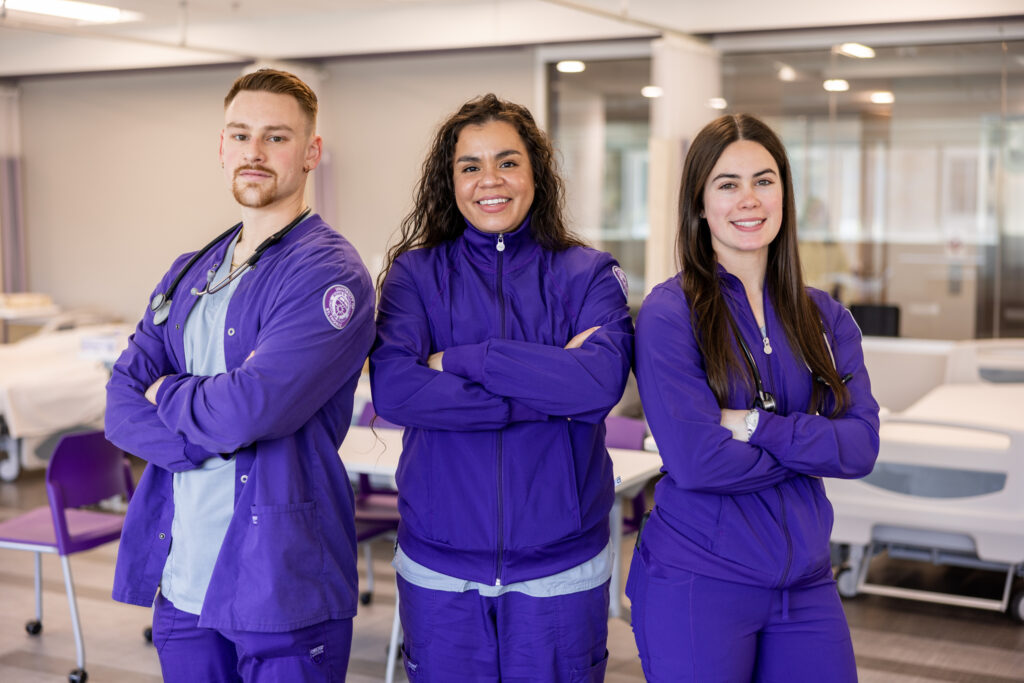During J-Term, 11 University of St. Thomas students, accompanied by Manuela Hill-Munoz, director of social justice and changemaking, and history professor Dr. Kari Zimmerman, volunteered for 10 days at the Humanitarian Respite Center (HRC) in McAllen, Texas. They supported the center in its efforts to provide recent immigrants to the U.S. with a safe place that meets their immediate needs. This initiative was organized through the VISION program of the Center for Common Good and was centered around the ongoing challenges related to immigration.
The primary site that students volunteered at, the Humanitarian Respite Center (HRC), is directed by Sister Norma Pimentel of Catholic Charities of the Rio Grande Valley, Texas. The center is often the first point of contact when families seeking asylum are released from immigration detention centers or holding facilities.
The HRC provides meals, legal information, temporary shelter, communications support, and medical supplies as immigrants determine their next steps within the U.S., with most of them arranging transportation via bus or plane to their family sponsors. Students engaged at the HRC by playing and interacting with migrant children, preparing and serving meals in the kitchen, and organizing donations.
“Having an opportunity to connect with the migrants was so meaningful. We were able to play with the children of migrant families,” student Brianna Haala said. “I felt an indescribable joy through dancing, building and drawing together – watching them just be kids again.”
student Brianna HaalaI felt an indescribable joy through dancing, building and drawing together – watching them just be kids again.”
The policies surrounding immigration are constantly changing. The center must respond and pivot to these shifting demands, which provides its own set of challenges. Pimentel elaborated on the center's journey through various phases and the fluctuating influx of individuals seeking assistance.
During the VISION trip, the center was housing around 250 people but has seen numbers upward of 1,000. The center's ability to effectively manage such fluctuations requires a concerted effort from its staff, volunteers and collaborating agencies. Together, they must continually reassess and adjust their services and resources to ensure the provision of adequate support to migrants and refugees.
Overall, students emphasized the ministry of presence, being in solidarity, and their role in listening to the stories of those at the center as well as the power of bearing witness.
“It’s special to think that we might be one of their first positive interactions with people in the U.S. We did not take that lightly,” sophomore Elizabeth Gregory said. They spoke with individuals from several different countries and listened to their experiences. Many had traveled for months before reaching the border and often had traumatic experiences during their journey.
“You see a lot in the media about immigration, but it was so impactful to witness what is actually happening and meet people directly affected,” Gregory continued.
Students also toured the Donna Holding Facility directed by U.S. Customs and Border Protection. They observed many differences between this facility and the HRC, where Pimentel emphasizes her goal of restoring human dignity to each person.
Morgan Whiting, a sophomore, explained, “The body language of the people at the holding center was so defeated. At the HRC, you saw kids with so much more life and parents smiling, watching their children.” The HRC is likely the first place that they feel completely safe.



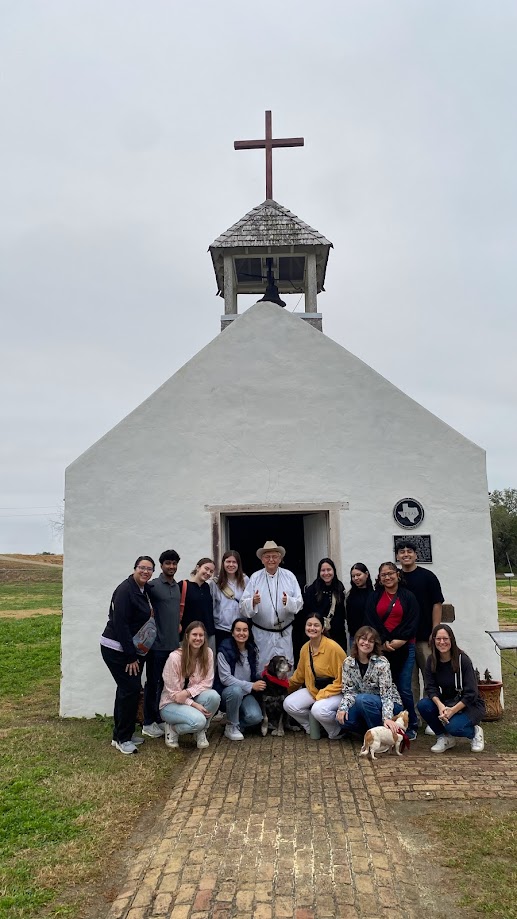
Beyond volunteering at the center, the group spent time connecting, learning, and reflecting with the Rio Grande Valley community in Texas. They attended sunrise mass at La Lomita, a 100-year-old chapel in danger of being on the Mexican side of the wall if it was to be extended.
Maria Bloemendal, a senior at St. Thomas, described the beautiful scene. “The sun was just beginning to rise, candles lit the altar, and a song played on an old CD player. The parishioners were so welcoming and kind to our group!”
Another day, they spoke with Father Pat, a priest who has rallied his church to minister to migrants waiting across the border in Reynosa, Mexico. Despite facing threats for his work, he continued to deliver basic supplies and started a weekly Mass in Reynosa, Mexico. They also attended cultural experiences like an all-high school competition of mariachi bands at the Basilica of Our Lady of San Juan del Valle-National Shrine.
On the last day, the group had the opportunity to meet with Laura Peña, the director of ProBAR, a pro bono law firm that provides counseling for immigrants. The process of seeking asylum is long and confusing, especially for unaccompanied minors, and ProBAR works to inform individuals of their rights.
“Meeting with Laura exposed me to different challenges people face even after being processed into the U.S. This tied the whole trip together for me as we got to learn a lot about the legal technicalities,” freshman Hugo Sanchez Torres said.
Back in Minnesota, the students want to continue their connection with the Humanitarian Respite Center.
“After reflecting on our experiences, I believe that a huge way to spread awareness is just by sharing. Sharing what we learned, what we saw, the people we met, and the experiences we take back with us helps provide a human aspect to a complex problem,” junior Sierra Pieper said. They also look forward to finding ways that they can involve the St. Thomas community more tangibly in the future.
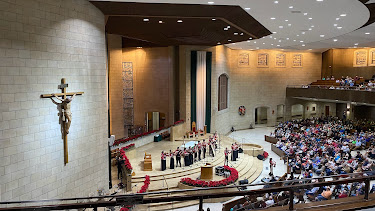

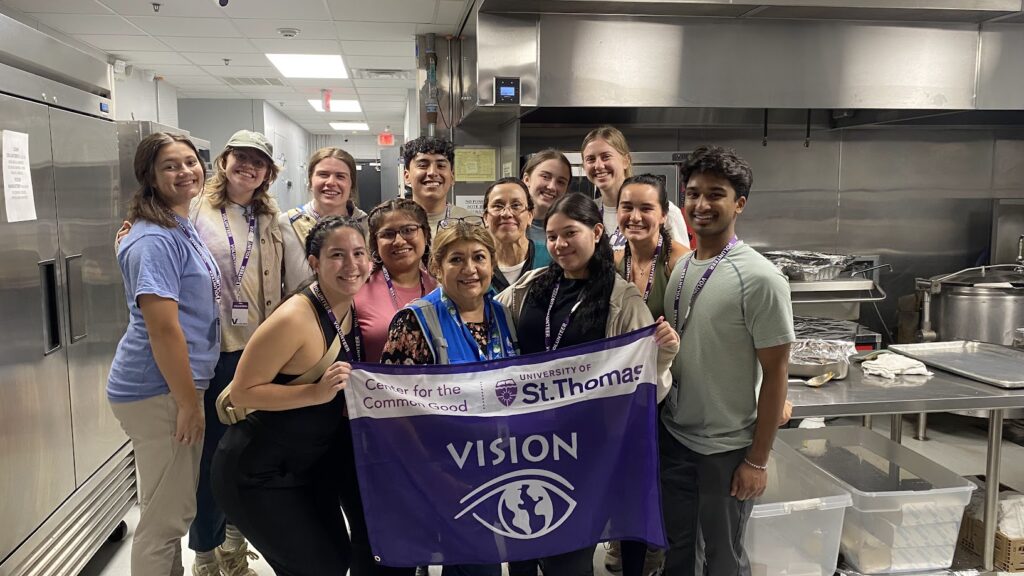
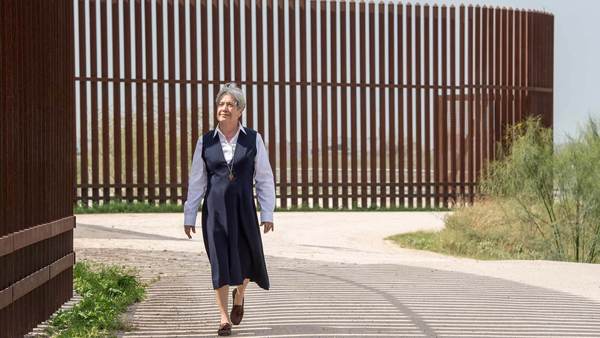
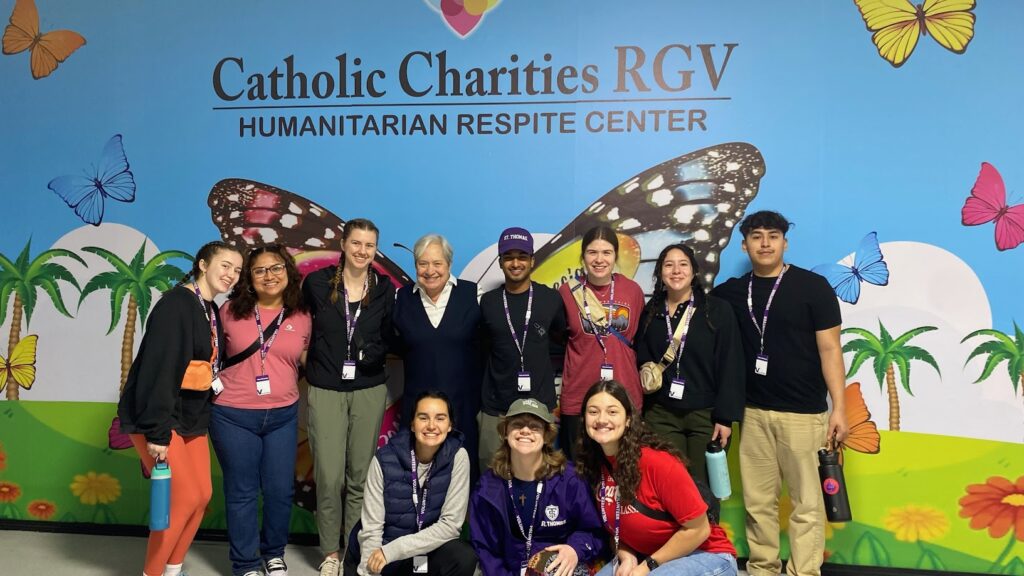
Overall, students' main takeaway from the trip was the resiliency of migrants. Students recognized the inherent power of human dignity in shaping narratives of strength and perseverance. Through this reflection, participants gained a deeper understanding of the variety of contributions migrants bring to their communities. They were able to challenge their preconceptions and foster empathy in their learning. Attendees say that by celebrating the strength of migrants and affirming their dignity, "we not only honor their difficult journeys, but also cultivate a more inclusive and compassionate society that recognizes the value that diversity brings."
The VISION program plans J-Term and spring break immersion trips for St. Thomas students that explore topics of injustice in regional and global communities.
